Share
What's New
Resources updated Tuesday, May 23, 2017
May 23, 2017
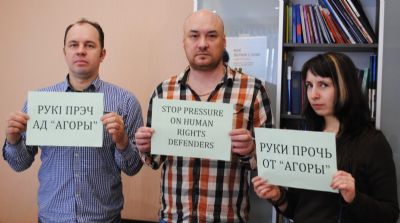
Russia, China, Other Non-Democracies Block Human Rights NGOs from Acquiring UN NGO Status Development
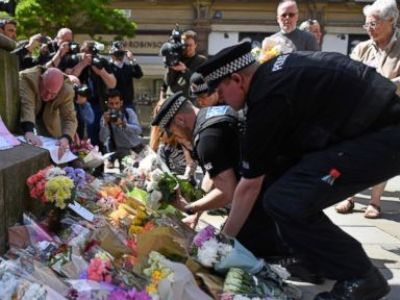
Manchester Bombing Highlights UN Hypocrisy on Terror Article
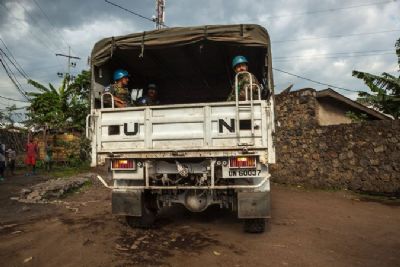
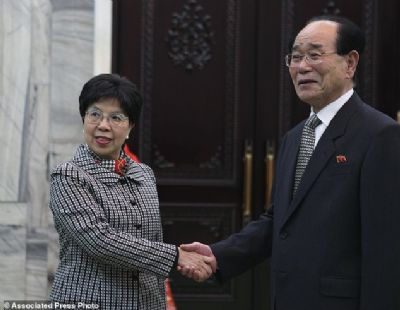
"As the World Health Organization struggled to coordinate vaccine production during the 2009 swine flu pandemic, its director-general met with Vladimir Putin, then Russia's prime minister, during an official visit to Moscow.
Dr. Margaret Chan commended Russia's public health achievements and asked if the country might be willing to make a cheap vaccine for use in developing countries. WHO could test it and if approved, the shot would help the poor and vulnerable, Chan suggested.
Putin hesitated, saying he wasn't sure there would be a sufficient market. He then noted a precipitous drop in the number of Russians employed by the United Nations health agency, from 52 to 17. Could Chan look into the situation, the prime minister asked?
Chan promised to consider the matter, according to internal notes of her June 2009 trip obtained by the Associated Press.
'She admitted that very few Russian nationals are now at senior positions in WHO,' the notes state, going on to refer to 'a need to discuss how to encourage them to apply.'
During her decade-long tenure as WHO's leader, Chan has often described herself as a 'servant' of the agency's 194 member countries. She says she accomplishes more with stern, behind-the-scenes diplomacy than with public criticism. But confidential notes detailing her work trips show that even in private, Chan, whose successor will be chosen Tuesday, sometimes was more inclined to appease heads of state than to challenge them on health issues...
Chan's multiple visits to authoritarian countries have raised some eyebrows, since no obvious health crises prompted the trips and spending time with leaders with patchy human rights records might have compromised the agency's integrity.
In April 2010, she led a delegation to Pyongyang, North Korea. After applauding the government's 'notable public health achievements,' including its 'excellent' tuberculosis treatment and 'good immunization coverage,' Chan opened the telemedicine facilities at the Kimanyu hospital that WHO helped support.
She also extolled North Korea's 100 percent literacy rate during the visit and said the country had enough doctors and nurses..."
Outgoing UN health agency head practiced art of appeasement Article
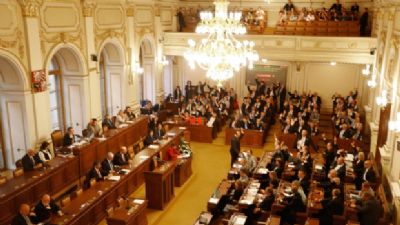
"The Czech parliament adopted a resolution condemning UNESCO's politicization and the decisions against Israel, and even recommended that the Czech government stop payments to UNESCO.
Israel's ambassador to UNESCO, Carmel Shama Hacohen, said in response: 'Another welcome decision and another sane voice against the series of delusional decisions regarding Jerusalem. Certainly a beautiful gift from Prague to the people of Israel on Jerusalem Day.'"
Czech parliament condemns UNESCO's politicization and anti-Israel decisions Article
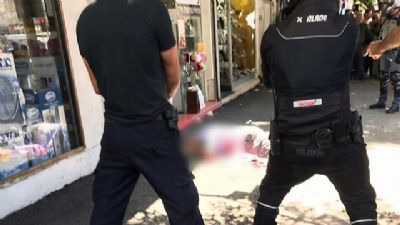
Israeli Police Officer Stabbed in Netanya Terror Attack Document

In August 2015 Wang Quanzhang was detained by the Chinese authorities.
In that he was not alone. The nationwide series of raids that summer saw more than 200 lawyers, legal assistants and human rights activists brought in for questioning.
But almost two years on, Mr Wang is the only lawyer from whom nothing has been heard at all.
"I don't know whether he's alive or dead," his wife Li Wenzu told me. "I have had no information at all. He has simply disappeared from the face of the earth. It is so scary, so brutal."
China's "709" crackdown as it's now known - a reference to 9 July, the date it began - is widely seen as a sign of a growing intolerance of dissent under President Xi Jinping.
Of the large number of people initially detained, around two dozen have been pursued as formal investigations. Over the past year or so those cases have gradually been reaching some kind of a conclusion.
Some of the accused have been given long jail terms, of up to seven and a half years, for the crime of subversion.
Others have been given suspended prison sentences or released on bail, but still remain under constant surveillance.
But of the lawyers arrested in that initial 2015 sweep, Mr Wang is unique. Apart from one brief written notification of his arrest, the family say he has disappeared into a black hole.
"For these two years, he hasn't been allowed to meet the lawyer that we have employed for him, and he has no right to communicate with the outside world," his wife Ms Li said. "He has been deprived of all rights."
There have been allegations that some of the lawyers have been tortured during their detention, force-fed drugs, shackled, beaten and kept in stress positions for long periods of time.
Their admissions of guilt, either in court or in the televised confessions that have been broadcast by state-run TV, should not be taken at face value, their supporters argue, but rather as the inevitable consequence of the pressure they've been under.
They now fear that Mr Wang's continued incarceration might be because he is holding out.
"I think it might be because my husband hasn't compromised at all," Ms Li said. "That's why his case remains unsolved."
Wang Quanzhang is certainly no stranger to pressure. His work representing the persecuted followers of China's banned spiritual movement, Falun Gong, as well as human rights activists, has attracted the ire of the authorities before.
In this interview, he recounts being beaten in the basement of a court building for challenging the order of a judge.
Jerome Cohen is a professor at New York University School of Law and a long-term expert on the Chinese legal system. He knows some of the detained lawyers personally.
"They are in the lead, they are the ones who have really gone public. There are many other lawyers who are quietly working, they hope, within the limits allowed by the party," he said.
"But they too are feeling the pressure and are watching very carefully how these lawyers, who were up front as it were, are being abused."
"Of course this deters a lot of people, which is the whole aim of the party... to try to keep the lawyers in line."
President Xi Jinping has spoken of the dangers that liberal ideals, like constitutional rights enforceable in the courts, pose for Communist Party rule.
China, it seems, wants lawyers to help it "rule by law", not keep its rulers in check through the "rule of law".
The lawyers whose cases have gone to trial appear to be those who have consistently taken on the most politically sensitive cases, as well as those who have advocated for the need for a justice system beyond party control.
"The party knows it needs lawyers, it wants them for economic development," Mr Cohen said. "But essentially, the party would like lawyers to behave like dentists, like technicians."
"I admire dentists very much but I don't expect them to annunciate the values of my society," he added.
"So this is what the party is trying to do, and it is doing so with extreme cruelty."
But if that is the plan then, on one level, it isn't working. The "war on law" has prompted the wives of the detained lawyers to work together and advocate very publically for their husbands' release.
Despite facing continuing intimidation and harassment by plain-clothes policemen, they have refused to be silenced.
Some of them even addressed a US Congressional hearing on the issue this week, including - via recorded video evidence - Li Wenzu.
Other Chinese lawyers have come to the defence of those caught up in the crackdown, visiting detention centres to demand information or mounting legal challenges, only then, subsequently, to be detained themselves.
And the wider community of Chinese defence lawyers has made public its opposition to the alleged mistreatment of members of the profession.
Meanwhile there is mounting concern about the fate of Wang Quanzhang. If he really is still holding out against the odds, his loved ones fear the consequences.
Lawyer and friend Ge Wenxiu recorded this video message that was posted on Twitter this week. "Lawyer Quanzhang, are you still alive?" he asks. "We don't mind if you make a damn confession on Chinese TV and come home. Come home."
Wang Quanzhang: The detained Chinese lawyer who simply vanished Document
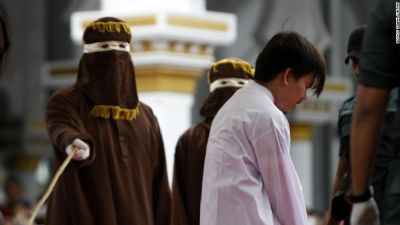
Two men were caned 83 times Tuesday as a punishment for having homosexual sex in Indonesia's ultra-conservative Aceh province.
Hundreds of people turned out to see the public punishment, held at a mosque in Banda Aceh, the capital of Aceh province, filming the caning on their phone cameras. It is very rare, even in Aceh, which follows strict Islamic law, for two men to be caned for having sexual relations.
The men, aged 20 and 23, were arrested in March by vigilantes. Neighbors had barged into an apartment with the men and filmed them naked with camera phones, according to rights groups. The videos were shared widely in local media.
They were subsequently found guilty of violating Aceh's strict Islamic laws and were sentenced to 85 lashes. On Tuesday, two lashes were taken off because the men had already served two months in prison.
The punishment site was under tight security. The young men were caned alongside four other couples, who had been found guilty of being intimate outside of marriage.
The beatings began at 9 a.m. local time and finished four hours later.
Aceh's strict Islamic laws
Unlike the rest of Indonesia, Aceh follows strict Islamic laws, which make sexual activity outside marriage and same-sex relations illegal.
The rattan cane used to whip the men.
During sentencing, Khairil Jamal, the lead judge, said both defendants were clearly guilty. "No evidence was found to justify and forgive them. Therefore, they shall be punished according," he said.
LGBT activists and human rights groups condemned the punishment.
"These young men are two Indonesians who wanted nothing more than to live their lives and have their privacy respected," Kyle Knight from Human Rights Watch wrote about the case last week.
The public punishment comes just days after more than a hundred men were arrested at a gym and sauna in North Jakarta, accused of participating in a gay sex party.
Human Rights Watch researcher Andreas Harsono told CNN Monday there were huge concerns among Indonesia's LGBT community.
"So much fear, I meet them almost every day, if not every other day. I've been helping many of them to escape arrest or to deal with abuses, give them counseling," he said.
Two men caned 83 times in Indonesia for homosexual sex Document
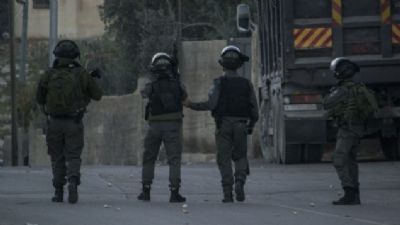
Border Police officers shot dead a Palestinian man as he attempted to stab them at a guard post in the Palestinian town of Abu Dis, east of Jerusalem, police said Monday.
No officers were reported injured, a police spokesperson said.
The alleged attack outside Jerusalem occurred as US President Donald Trump was in the capital for an official state visit with security significantly ramped up in and near the city.
The name of the Palestinian man has yet to be released, but he was identified as a resident of the West Bank city of Bethlehem.
Police recovered the knife used in the attack. It was a cheap stainless steel blade that appeared to have bent out of shape.
Some 11,000 police and security forces are taking part in the operation to secure Trump's visit. On Tuesday, he is slated to travel to Bethlehem.
Palestinians have taken part in violent protests across the West Bank throughout Monday, clashing with Israeli troops.
According to the Red Crescent, three Palestinians were hit by gunfire during protests in the city of Qalandiya, north of Jerusalem, and in the town of Nabi Saleh, north of Ramallah. They were in stable condition.
Another 26 Palestinians are also receiving treatment for lighter injuries, the Red Crescent said.
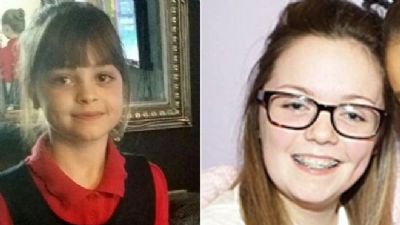
Twenty-two people, including an eight-year-old girl, have been killed and 59 were injured in a suicide bombing at Manchester Arena, at the end of a concert by US singer Ariana Grande.
A man set off a homemade bomb in the foyer at 22:33 BST on Monday, in what Theresa May called a "sickening" act.
Armed police have arrested a 23-year-old man in Chorlton, south Manchester, in connection with the attack.
Saffie Rose Roussos was a pupil at Tarleton Primary School, in Lancashire.
Her head teacher, Chris Upton, said she had been "simply a beautiful little girl in every aspect of the word" and was "loved by everyone".
Student Georgina Callander, believed to have been 18, has also been named as among the dead.
She had been studying health and social care at Runshaw College in Leyland, Lancashire.
Sixty ambulances went to Manchester Arena after the attack and the wounded are being treated at eight hospitals around the city.
Among them are 12 children under the age of 16.
In a statement in Downing Street, the prime minister said it was "now beyond doubt that the people of Manchester and of this country have fallen victim to a callous terrorist attack" that targeted "defenceless young people".
She said the security services believe they know the attacker's identity but are not yet able to confirm it.
It is the worst terrorist attack in the UK since the 7 July bombings in 2005, in which 52 people were killed by four suicide bombers.
So-called Islamic State has said it was behind the attack, via IS channels on the messaging app Telegram.
Greater Manchester Police Chief Constable Ian Hopkins said it was "the most horrific incident" the city had ever faced, and the "fast-moving investigation" was now working to establish whether the attacker "was acting alone or as part of a network".
Officers have carried out raids at two properties, one in Whalley Range and one in Fallowfield, where a controlled explosion was carried out.
In other developments:
- Relatives are using social media to hunt for missing loved ones, and an emergency number - 0800 096 0095 - has been set up.
- The explosion happened shortly after Ariana Grande had left the stage and the 23-year-old actress-turned-singer, tweeted: "broken. from the bottom of my heart, i am so so sorry. i don't have words"
- Flags are flying at half mast outside Number 10 and political parties have suspended general election campaigning.
- Theresa May chaired a meeting of the government's emergency Cobra committee and is now visiting Manchester
- London Mayor Sadiq Khan said the police presence in the capital would be stepped up
- World leaders have expressed solidarity with the UK, including US President Donald Trump, who called those behind the attack "evil losers"
- Exam boards are telling schools directly affected by the attack that they can re-arrange GCSE and A-level exams in the wake of the attack
- Police have established a help centre at Manchester City's Etihad Stadium, access Gate 11, for anyone who needs assistance in tracing loved ones
- The Queen has expressed her "deepest sympathy" with all those affected, adding that "the whole nation has been shocked by the death and injury"
Andy Holey, who had gone to pick up his wife and daughter, said: "An explosion went off and it threw me about 30ft from one set of doors to the other set of doors."
Emma Johnson, who went to pick up her children, aged 15 and 17, said: "The whole building shook. There was a blast and then a flash of fire afterwards. There were bodies everywhere."
Teenager Abigail Walker, who was at the concert, told the BBC: "I had to make sure I had my sister. I grabbed hold of her and pulled hard. Everyone was running and crying.
"It was absolutely terrifying."
Charlotte Campbell's daughter Olivia is among those who have been missing since the concert. "She's only a 15-year-old girl, she's out there on her own because her friend has been found," she told the BBC.
The blast happened close to the entrance to Victoria railway and tram station. The station has been closed and all trains cancelled.
Greater Manchester Mayor Andy Burnham said the city would "pull together", adding: "That's what we are. That's what we do. They won't win."
The Manchester Arena is the city's largest indoor venue with a concert capacity of about 21,000. Police are encouraging anyone with footage from the scene to upload it at ukpoliceimageappeal.co.uk or ukpoliceimageappeal.com. Other information can be reported to the anti-terrorist hotline on 0800 789 321.
22 dead, 59 injured in UK suicide terror attack targeting the young Document
